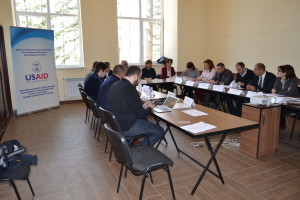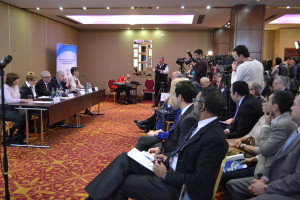
On April 4-5, the ASPIRED Project convened the second meeting of the Interagency Task Force, whose job is to provide recommendations to the Government of Armenia on the most rational fees for the use of underground water resource by fisheries in the Ararat Valley.
The roadmap of activities was elaborated following the first meeting of the Task Force in January 2016. Over the recent period, the team conducted the survey of the fish farms, with the use of electronic questionnaires and visited selected fisheries to interview the owners. The purpose of the survey was to understand the current status and issues of the sector and its future trends in the light of recent market developments. The results of the survey and facts, issues and observations made during the site visits as well as preliminary economic analysis of the fish farming sector was presented and discussed with the participants.
Another important topic of the meeting was the classification of the fish farms. While the ASPIRED team analyzed the best practice in the classification of the fish farms, the Task Force members presented their own recommendations as to which criteria should be used for classifying between large, medium and small-sized fisheries. This is particularly important if the diversified underground water use fee is proposed for adoption.
There was a heated debate among participants on the most acute financial and economic problems of the fish-breeding sector and an issue of finding a reasonable balance between the resource conservation priorities, rational use of underground water and the sector development needs.

